13 Discontinued Coca-Cola Drinks You'll Never See Again
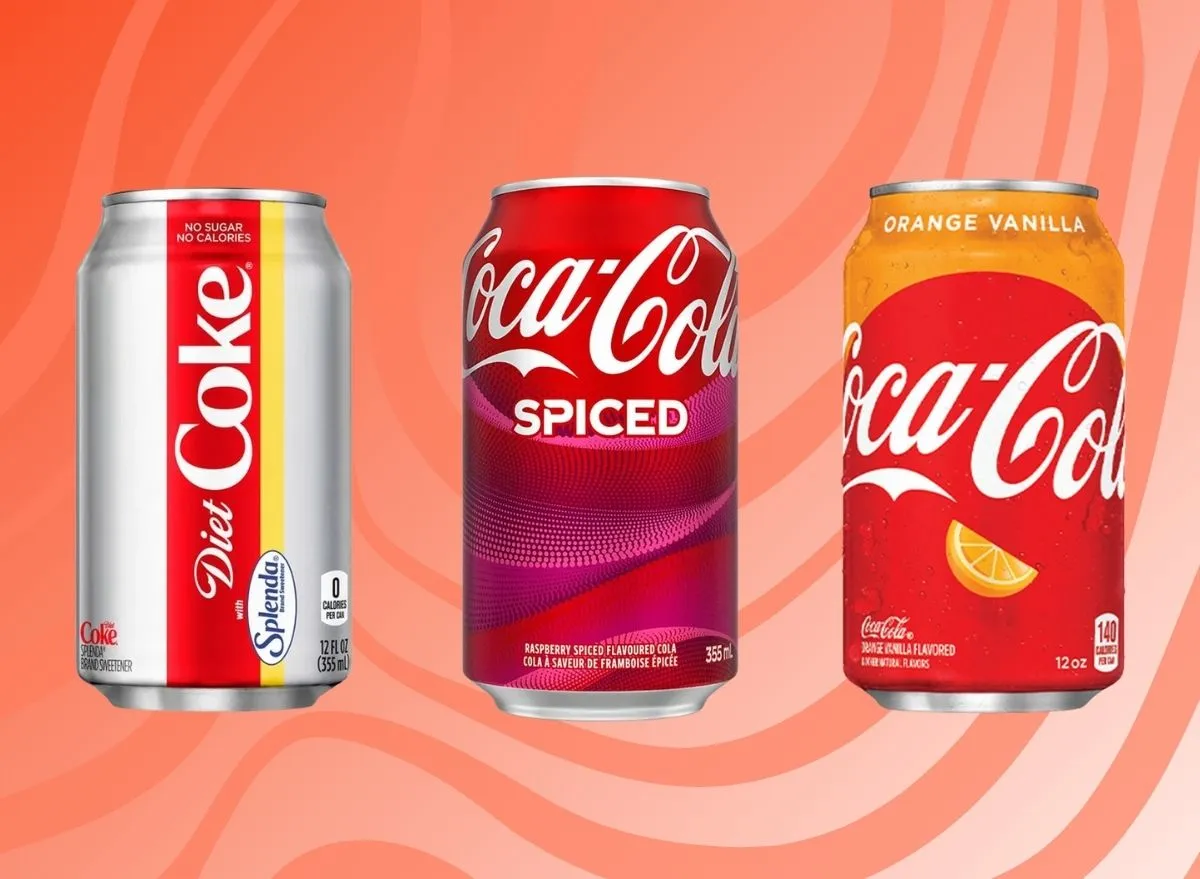
Innovation and change are essential cogs in the Coca-Cola machine. For the multibillion-dollar company, it's simply not enough to be one of the top-selling soda manufacturers in the world. The soft drink giant strives to continuously recapture audiences' attention by releasing new brands and products, reimagining older classics, and reviving old fan favorites. For instance, the company most recently relaunched Barrilitos, a beloved Mexican soft drink.
While some of these beverage additions and alterations fare quite well, others fizzle out right before our eyes. You probably remember the epic failure that was New Coke, which caused a Mentos-and-Diet Coke-sized eruption in the industry. Many Coca-Cola fans also watched in horror in 2020 as the company cleaned house, reportedly discontinuing 200 different drink brands, which were no longer pulling their own weight.
Since then, Coca-Cola has recovered, of course, and is back to its usual ways of releasing beverage after bubbly beverage that no one ever really asked for. In 2024 alone, the soda giant has launched multiple new offerings, including the limited-edition, peachy-flavored Happy Tears, as well as Coca-Cola Oreo, which features hints of the iconic sandwich cookie.
Among the various soft drink successes are many Coca-Cola drinks that went flat a while ago and have since been long gone from our memory. Let's take a look at some of the company's discontinued products that you're unlikely to ever see again on store shelves.
Discontinued Coke Products:
- Coca-Cola Spiced
- Coca-Cola Cherry Vanilla
- Diet Coke with Splenda
- Honest Tea
- Coca-Cola with Lime
- Coca-Cola Orange Vanilla
- Tab
- Coca-Cola Black Cherry Vanilla
- Coca-Cola Cinnamon
- Coca-Cola Blak
- Vault
- Coca-Cola Energy
- New Diet Coke Flavor
Coca-Cola Spiced
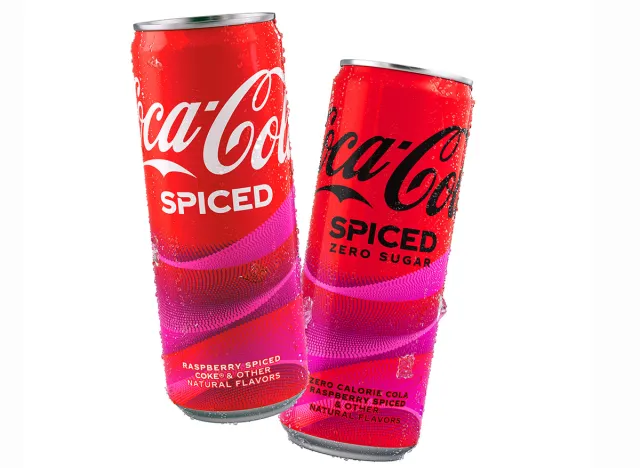
The Coca-Cola Company launched Coca-Cola Spiced last February only to announce its discontinuation seven months later. The soda, which the company previously described as "Coke's boldest tasting brand innovation yet," combined the classic Coca-Cola flavor with a "burst of refreshing raspberry flavors and spiced notes." It was intended to be Coca-Cola's first new permanent offering in three years.
Although the soda giant didn't provide a specific reason behind discontinuing Coca-Cola Spiced, it did share a statement about the decision with Eat This, Not That!
"We're always looking at what our consumers like and adjusting our range of products. As part of this strategy, we're planning to phase out Coca-Cola Spiced to introduce an exciting new flavor in 2025," a company representative shared in September.
So, it looks like soda fans will have to stay tuned to see what Coca-Cola has in store next year!
Coca-Cola Cherry Vanilla
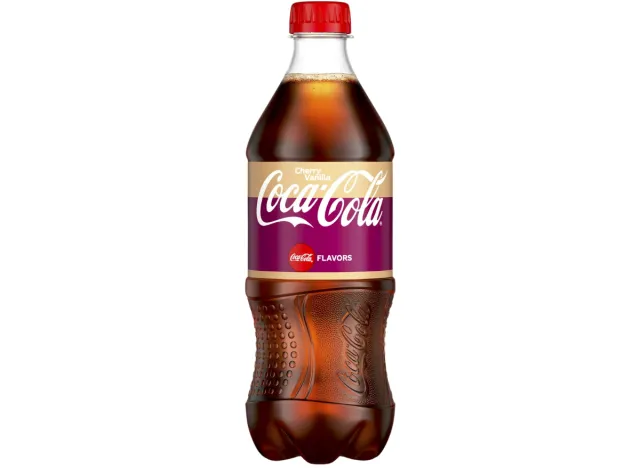
Coca-Cola fans will now have to mix Cherry and Vanilla Coke on their own if they want to enjoy this soda flavor, which came out in February 2020. Prior to the soda's launch, the Coca-Cola Company noted that cherry vanilla was the "most-poured Coca-Cola flavor combination" on Coca-Cola Freestyle machines.
Despite the popular pairing, the premixed soda flavor was discontinued in late 2023, according to Today. In March, Coca-Cola confirmed the discontinuation on X, formerly known as Twitter, noting that the soda will only be available while supplies last. However, it wasn't until September that the discontinuation became more widely known.
"We decided to discontinue Coca-Cola Cherry Vanilla due to consumers' taste preferences and lifestyles constantly changing. As a total beverage company, we are always searching for ways to evolve our product portfolio to bring consumers the beverages they want," Coca-Cola wrote on X in September after someone tagged the company in a post about the drink possibly being discontinued.
Diet Coke with Splenda
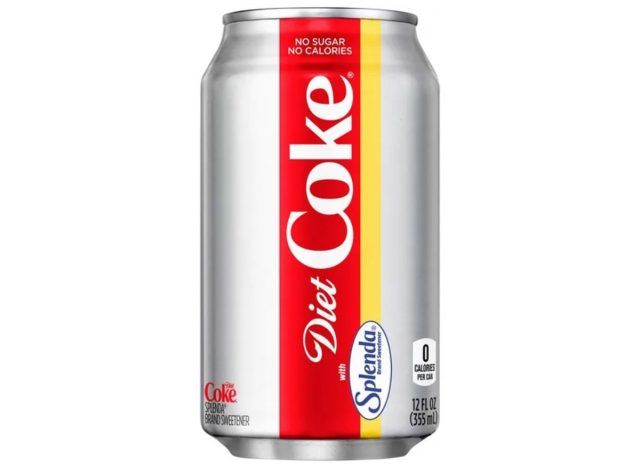
Diet Coke with Splenda hit stores in 2005. Nineteen years later, the company confirmed that it has gotten rid of the artificially sweetened soda. In September, one X user shared a post, asking Coca-Cola if the company still sells Diet Coke with Splenda.
"Unfortunately, Diet Coke with Splenda has been discontinued. We're sorry for any disappointment," the beverage company responded.
This answer elicited some strong reactions on X, with one person writing, "Congrats on making me switch to Pepsi. This was a huge fail on your part @CocaCola."
Honest Tea
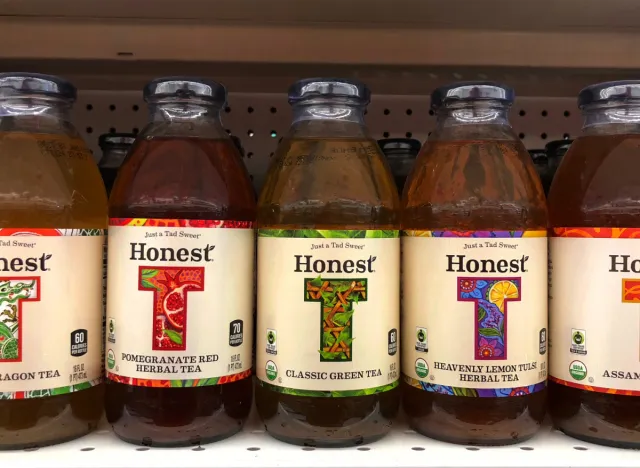
Soda isn't the only type of beverage Coca-Cola has stopped selling. In 2022, the company announced that it would discontinue its Honest Tea line and solely focus on its Gold Peak and Peace Tea offerings. Honest Tea was founded in 1998, and the Coca-Cola company purchased a 40% investment stake in the brand back in 2008. In 2011, the soda giant fully acquired Honest.
"Shifting from a three-brand tea portfolio to a prioritized two-brand tea lineup will free up investment resources and supply chain capacity to better meet consumer needs and capture share in the category," Sabrina Tandon, group director of RTD Tea at Coca‑Cola's North America operating unit, said in a statement in May 2022. "We believe Gold Peak and Peace Tea are best positioned to meet consumer preferences for high-quality brewed teas with different levels of sweetness and flavor."
Coca-Cola also shared that Gold Peak and Peace Tea sales increased during the pandemic, while Honest teas were "negatively impacted by a drop in immediate consumption sales and limited glass supplies."
Despite Honest teas being phased out, Coca-Cola still sells Honest Kids juice pouches and boxes.
Coca-Cola with Lime
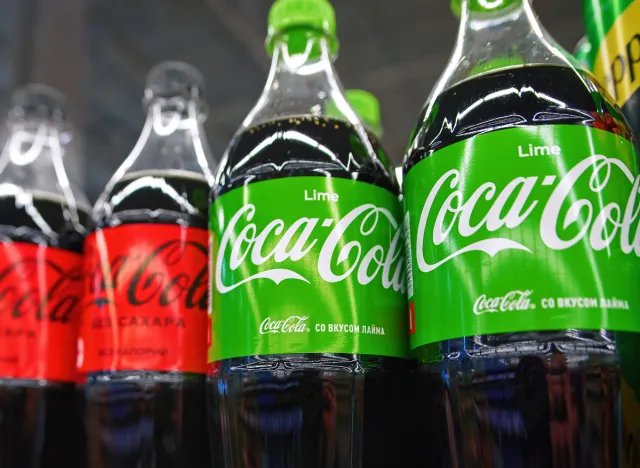
"Put the lime in the Coke, you nut," were the witty lyrics used to introduce Coca-Cola with Lime back in 2005. The company's advertisements were set to the tune of Harry Nillson's 1972 hit song "Coconut," and it's still stuck in our heads nearly two decades later.
The formula for this new innovation was simply normal Coke, but with a hint of lime flavoring. A review of the product on BevNet.com called the lime flavor "more subtle than the vanilla or cherry flavored varieties," "more natural tasting," and also said that it gave "the product a nice citrus finish that [helped] reduce the normal aftertaste found in cola." The review also questioned, however, if the soda and lime combination (which had been done before by other drink producers) would have any long-term success.
Well, the answer is that it didn't—at least not in the United States. The citrusy beverage was discontinued throughout the country in 2006, just a year after its arrival. Diet Coke Lime, which came before Coca-Cola with Lime in 2004, better stood the test of time, but eventually met its own demise in 2018.
Coca-Cola Orange Vanilla
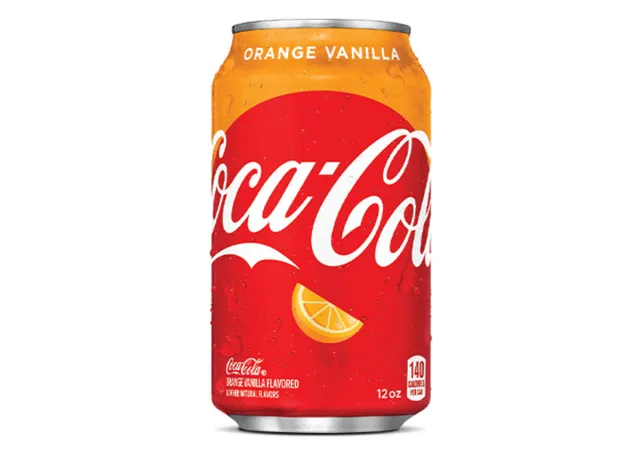
In 2019, Coca-Cola dove back into the grove, and this time came up with Coca-Cola Orange Vanilla. Many thirsty fans said it was reminiscent of a creamsicle, and it was originally announced that it would become a permanent addition to the Coke lineup.
However, early in 2022, consumers noticed the orange goodness was quietly being picked from store shelves. And soon after, the following message from Coca-Cola appeared on Twitter: "The Coca-Cola Company recently made the decision to discontinue Coca-Cola® Orange Vanilla. Coca-Cola® Orange Vanilla will not be available on store shelves after March 2022."
While cans and bottles of Orange Vanilla are no longer being stocked, fans of this flavor combination fan look forward to Coca-Cola Orange Cream, which is slated to roll out during the first quarter of 2025, according to Beverage Industry. This will be available in regular and zero-sugar varieties.
Tab
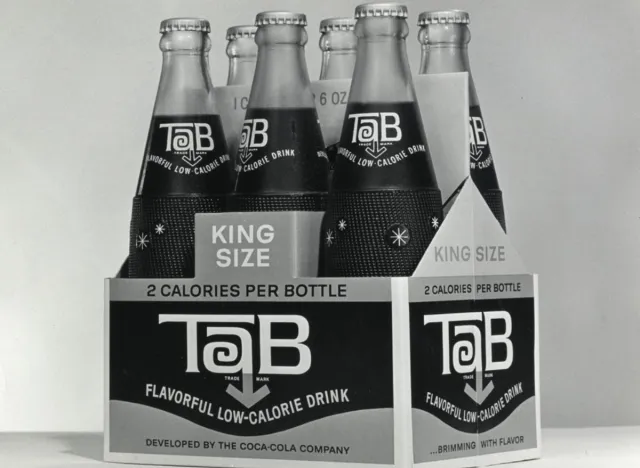
Introduced in 1963, Tab was the very first diet soda under the Coca-Cola umbrella. With its sugar-free, no-calorie formula, the drink was marketed to consumers wanting to keep "tabs" on their weight.
Tab quickly gained what can only be described as a cult following in the '60s and '70s–one which holds true to this day. And, multiple variations of the beverage including six different flavors and a caffeine-free option hit the market before the entire brand was let go during Coca-Cola's 2020 wave of discontinuations.
However, there were no hard feelings during the breakup, and Coca-Cola even wrote Tab a heartfelt farewell note which was shared in honor of the drink's 57 years of influence. "The brand is a pop icon, thanks to the highly recognizable colorful pink can, and the effervescent liquid tucked inside is truly one of a kind," the dedicated Tab page on the Coca-Cola website read. "The larger than life diet soda has charmed people across the world. Tab is stepping out of the spotlight, but the legacy continues."
RELATED: 35 Worst Sodas for Your Health
Coca-Cola Black Cherry Vanilla
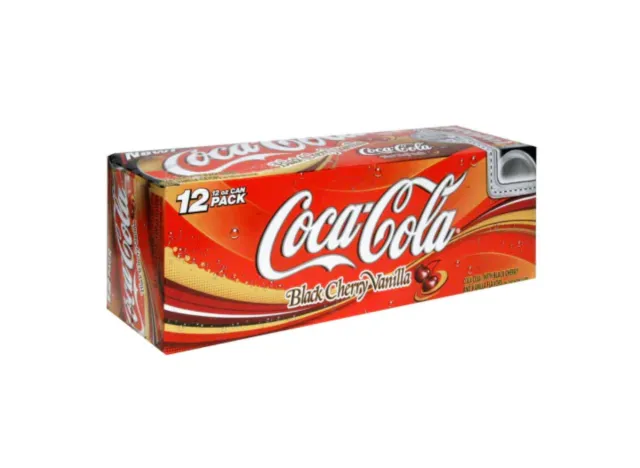
It seems some of the Coca-Cola mixologists got a little pour-happy back in 2006, giving life to this wildly fruity and creamy concoction. Coca-Cola Black Cherry Vanilla, which sounds more like a dessert than a drink, was released in both regular and diet varieties. But, neither made it longer than a year on the market.
Rumors have circled that with the return of Coca-Cola Vanilla in 2007, Black Cherry Vanilla consequently got the boot. We guess there's only room for one vanilla-based Coke around these parts.
Coca-Cola Cinnamon
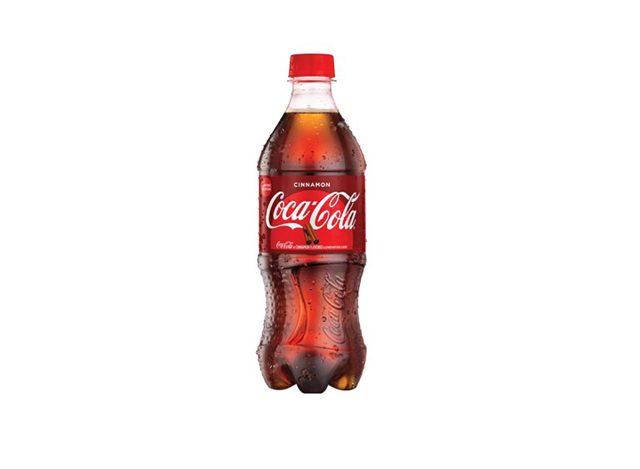
Each year around the holidays, beverage companies feel the need to warm us up with a spicy take on their classic sodas. Specifically, in 2019, Coke's gift to us was Coca-Cola Cinnamon. The drink reappeared the following year in 2020 for a limited time but has been MIA ever since.
According to a review by The Impulse Buy, the soft drink had "enough cinnamon to separate it from regular Coke, but not enough to make people feel like they're taking the Cinnamon Challenge." While this seems like the perfect amount to us and even though this was altogether a shining review compared to what other cinnamon drinks like Pepsi Fire faced, it's doubtful that Coca-Cola Cinnamon will return any time soon.
Coca-Cola Blak
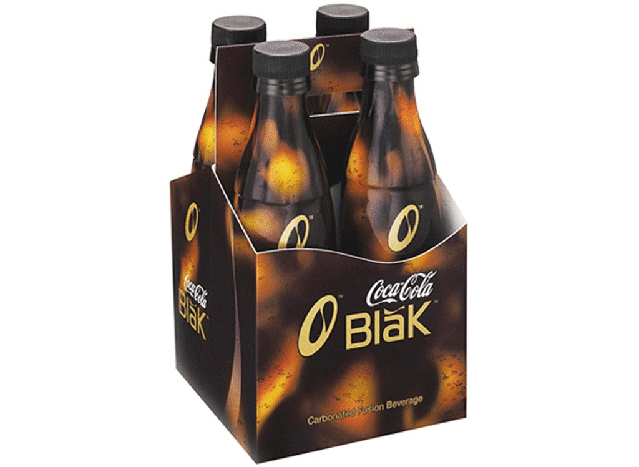
In 2006, Coca-Cola thought some consumers may enjoy their soda like they enjoy their coffee: black. Coca-Cola Blak was a mid-calorie (landing somewhere in between regular and diet) coffee and soda mashup, which used high-fructose corn syrup and the artificial sweeteners aspartame and acesulfame potassium in place of sugar.
According to BevNET, the bold combination got off to a great start but left you with an aftertaste that was "bitter" and even "somewhat brutal." This opinion seemed to be a popular one, and after less-than-ideal sales, the drink's production was ground to a halt after less than a year and a half.
Despite being called a drink "before its time" by Coca Cola's own chief technical officer, Coca-Cola Blak actually came a decade after other cola and coffee drinks, including the failed Pepsi Kona. Apparently, Coke didn't learn from the mistakes of its competitors, and later on proved that it didn't learn from its own, either. The company introduced a similar beverage in 2019 called Coke with Coffee, which met the same fate as its predecessor in late 2022.
Hopefully the soft drink manufacturer has finally picked up that these two caffeine powerhouses are better off alone.
Vault
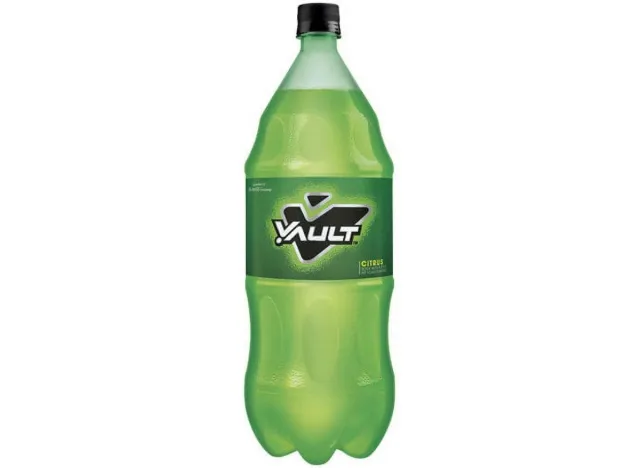
Vault, released in 2005, was one of Coca-Cola's first ventures into the world of energy drinks. The jolting beverage contained 47 milligrams of caffeine in each eight-ounce serving and came complete with punchlines like, "Get it done, and then some" and "Chug & Charge." It was commonly compared to another drink owned by Coca-Cola called Surge, with its citrus taste and many of the same ingredients.
Before it was discontinued in 2011, the drink had additionally been released in electrifying flavors of grape, orange, peach, lime, and even Red Blitz, which competed with Pepsi's Code Red Mountain Dew. Vault's exit from the market was abrupt and came at a time when Coca-Cola was focusing more heavily on other lines of highly-caffeinated beverages, including Mello Yello.
Coca-Cola Energy
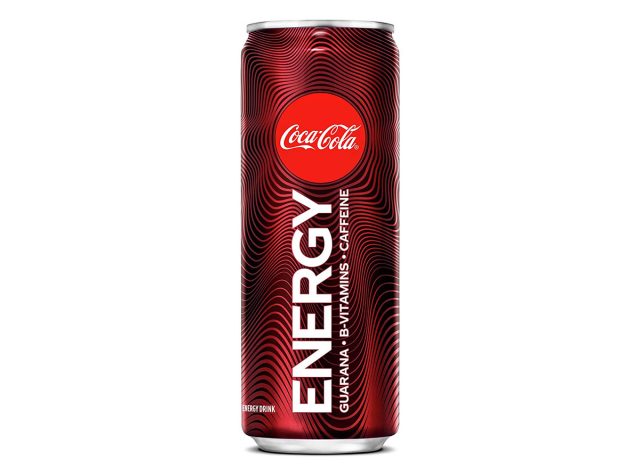
Following along within the same beverage category, Coca-Cola Energy was thrusted onto shelves in 2020 as the first official Coke-branded energy drink. Unfortunately, the drink's 80 milligrams of caffeine only gave it enough oomph to get through just about a year on American shelves, according to CNN.
All four variants of Coke Energy–including the original, Energy Zero Sugar, Energy Cherry, and Energy Cherry Zero Sugar–were made with guarana, B-vitamins, and safe-to-consume sugar alternatives.
If you did happen to fall in love with the caffeine-packed line of soft drinks during the brief time it was here, you may still be able to find it internationally in places like the United Kingdom.
New Diet Coke Flavors
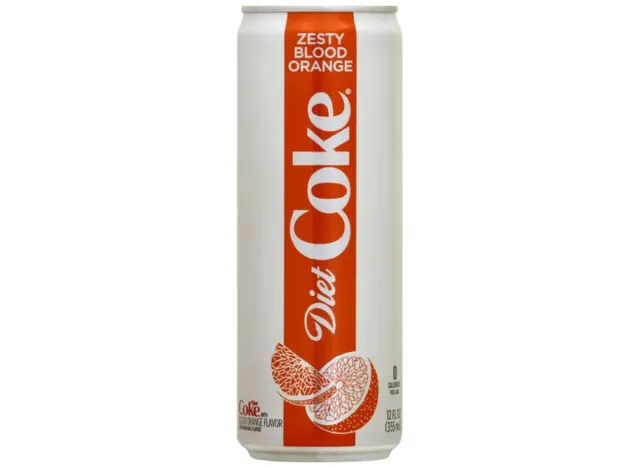
In order to reinvigorate the Diet Coke brand and to further engage those trendy and sometimes picky millennials, Coca-Cola announced a big change early in 2018. The Diet Coke line would add four new flavors, including Ginger Lime, Feisty Cherry, Zesty Blood Orange, and Twisted Mango–this time in tall, skinny cans. The following year, two more sensational tastes of Blueberry Acai and Strawberry Guava joined the bunch.
In Coca-Cola's press release about this new Diet Coke era, the group director of the brand, Rafael Acevedo, emphasized the importance of "modernizing Diet Coke to appeal to a new consumer base" and also noted that providing a flavor variety was a key piece to the puzzle.
Unfortunately, not all of the puzzle pieces were a great fit and a couple of these new, exciting flavors have already been axed from the lineup, including Zesty Blood Orange and Blueberry Acai.









